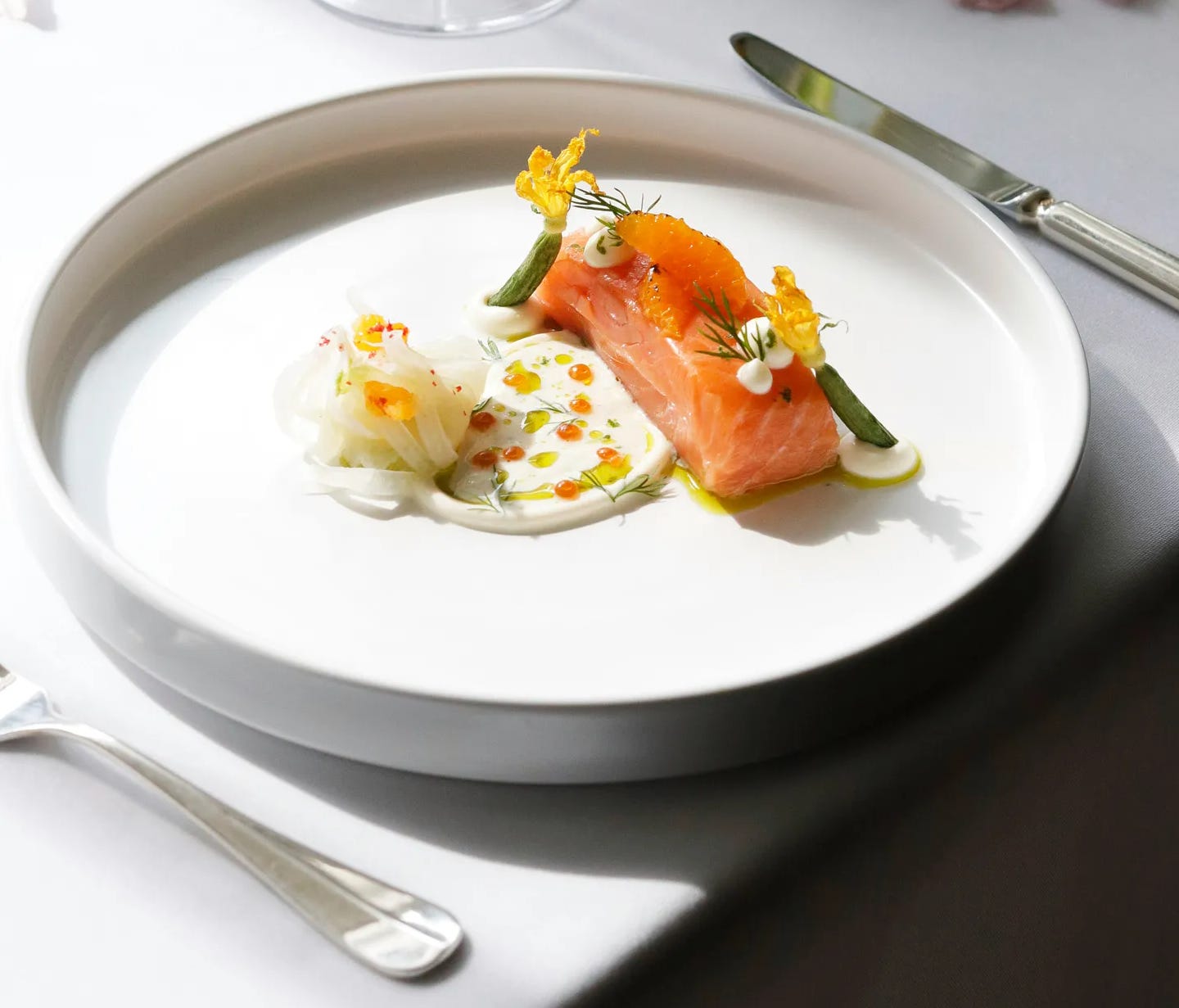The Fine Dining Approach to Work: Quality Over Quantity
What does your work "tasting menu" look like? What would you remove, and what would you perfect?
We've all been to those all-you-can-eat buffets where the goal is simple: consume as much as possible for your money. But think about your most memorable meal. Was it at a buffet, or was it at a restaurant where each carefully crafted dish told a story, where every bite offered a new texture and flavor that complemented the last?
The difference between these experiences offers a powerful metaphor for how we approach work.
Photo by liuyun wu on Unsplash
Beyond the Buffet Mentality
In the workplace, the "buffet mentality" translates to the belief that working longer hours automatically equals better performance. It's the corporate equivalent of piling your plate high—more meetings, more emails, more late nights. But just as a buffet prioritizes quantity over culinary excellence, this approach often sacrifices quality for the illusion of productivity.
Fine dining, on the other hand, is about curation. Each element serves a purpose. The portions are deliberate, the timing is precise, and the overall experience leaves you satisfied rather than uncomfortably full. When we apply this philosophy to work, we shift from asking "How many hours can I put in?" to "What value am I creating in the time I have?"
The Art of Professional Curation
A skilled chef doesn't throw every ingredient into a dish. Similarly, effective professionals don't say yes to every request or work themselves into exhaustion. They understand that sustainable excellence requires boundaries—not the rigid walls that some workplace communities advocate for, but thoughtful limits that protect both quality and well-being.
This isn't about becoming calculative or transactional. When you're constantly measuring your effort against potential rewards, you create a dynamic where both you and your manager are playing a zero-sum game. Your manager, being human, will have biases. They may not be able to protect you from broader economic forces. And if they sense you're holding back or keeping score, you might find yourself first in line when difficult decisions need to be made.
The Compound Effect of Excellence
But here's the paradox: when you focus on delivering exceptional value—when you approach your work like a master chef approaches a tasting menu—you often create something more powerful than individual job security. You build teams that deliver results customers actually want. You contribute to organizations that thrive rather than just survive.
Companies with teams focused on genuine value creation rarely need to make the kinds of cuts that keep employees awake at night. When your collective work creates real impact, layoffs become a last resort rather than a regular business cycle event.
Finding Your Recipe
The goal isn't to work yourself to exhaustion or to do the bare minimum. It's to find that sweet spot where you can take pride in your contribution while maintaining the energy and perspective needed for sustained performance. Like a perfectly balanced dish, great work requires both passion and restraint, both creativity and discipline.
The next time you're tempted to pile on another commitment or stay late just for the sake of being busy, ask yourself: Am I creating a buffet plate or a carefully crafted experience? The difference might just determine not only the quality of your work, but the sustainability of your career.
What does your work "tasting menu" look like? What would you remove, and what would you perfect?


